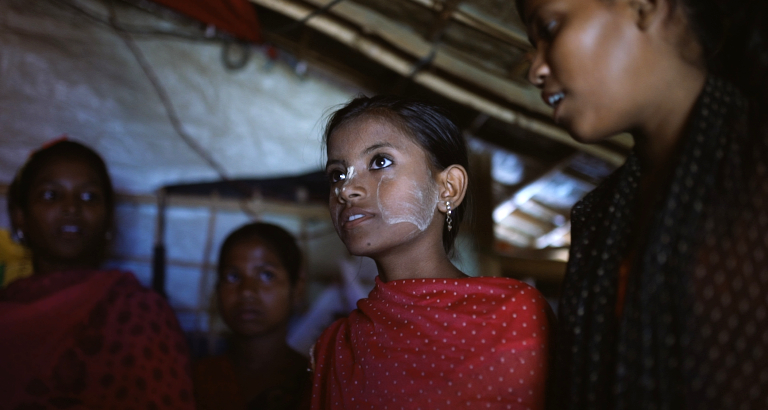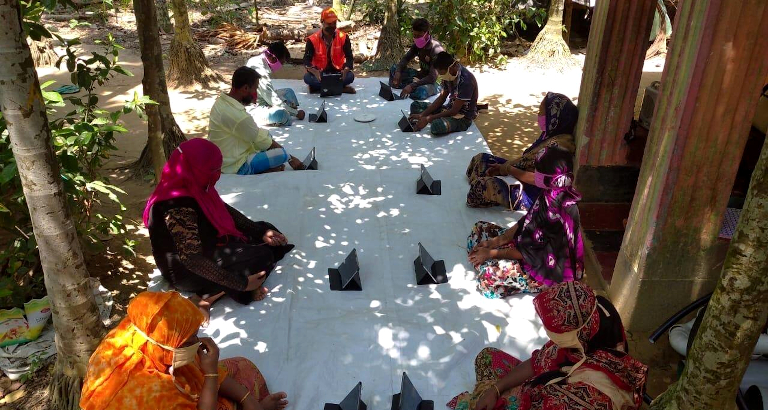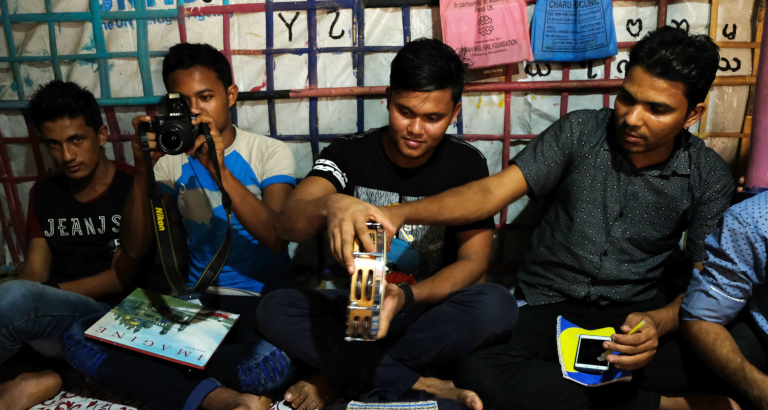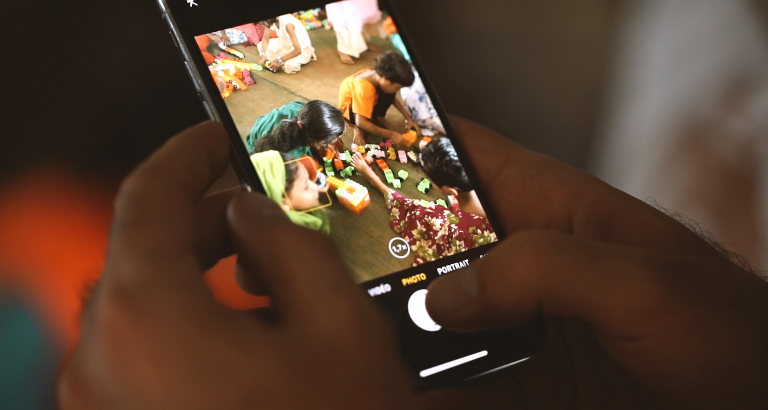The Covid-19 pandemic has made the question of access to quality health information vital, especially among communities in already vulnerable circumstances. Since March 2020, in the refugee camps of Rohingya in Bangladesh, Bibliothèques Sans Frontières (Libraries Without Borders) has organized activities to inform and help prevent the spread of the virus, as well as workshops to fight against the fake news that circulates wildly. We asked Fariha Mostafa, in charge of the project in Cox’s Bazar, to tell us more about daily life in the camps.
BSF: Over the last three years, Cox’s Bazar has welcomed some 860,000 Rohingya, the Muslem minority historically subjected to systemic discrimination in neighbring Myanmar. In 2019, BSF installed six Ideas Box kits (portable media centers) and ten Ideas Cube servers (for off-line access to digital resources) in the camps and villages, with contents in Birman, Rohingya, and English chosen by our teams helped by local translators. Our users are refugees and Bangladeshis who gather to have fun and to continue to learn. We set up workshops for children and teenagers, including writing, story-telling, and digital literacy.
And then came Covid-19. What happened to our programs?
FM: Our activities were severely affected by Covid-19, and we had to rapidly adapt. Along with the International Organization for Migration, we set up workshops — respecting all sanitary measures — to inform and prevent the spread of the virus. Books, games, and tablets are now disinfected after each use, and participants are required to wash their hands regularly. Before the pandemic, there were ten or twelve participants; now it’s half that.”
BSF: Before the pandemic, you were already working to combat misinformation and fake news. How much of a problem is that now?
FM: Several months ago a rumor spread in the camp that a vaccine against Covid-19 was available but reserved for Bangladeshis. Strong feelings broke out. The Rohingya refugees are highly susceptible to the different rumors that circulate in the camp, which puts them at risk. To confront such disinformation, our teams organized several activities and workshops to learn to read and listen critically. We selected and translated reliable sources and organized workshops to fight against fake news. Faced with the uncertain tension of the health crisis, conversation groups were instituted so that all could freely express their concerns.
The tensions between the Rohingyas and the Bangladeshis are not new. To the concern that host communities are losing their lands and jobs to the refugees has been added the fear of being contaminated by them. It’s why we organize shared activities where they can meet and learn to know each other, watch a film or go on a photographic outing together.
BSF: What about the young girls and women? Do they have opportunities to participate?
FM: It’s true that girls and women don’t move around as much in the camp as boys and men. Early marriages and religious constraints strictly limit access to our Ideas Box programs. So we decided to reserve time and activities for them with the Ideas Box. These media centers are one of the few spaces where young girls and women can be together and speak freely. We’ve organized English lessons, sometimes embroidery. Often, the activities are born of their desires. In the Ideas Box of camp 24, certain women — mocked by their husbands — wanted to learn to write their names in english to sign official documents. Until then, they had only a digital signature.
Then, to reach those who wouldn’t enter public space, our team went around the camp with Ideas Cube servers [that provide offline access to digital resources] into private houses, outside the male gaze. In Camp 24, for example, one of our facilitators organized awareness workshops on menstrual hygiene.”
BSF: What are the next steps?
Our teams recently finished training facilitators in host communities and among refugees who will allow them to become autonomous in the hand-off of our tools. Our goals are that they soon develop, prepare, and run their own activities, without our help, using the contents of the Ideas Box and Ideas Cube.
Since 2007, Bibliothèques Sans Frontières (Libraries Without Borders) works to provide access to information for those in need, whether from refugee camps in Bangladesh or rural zones in France, and to make the right to culture a fundamental human right. In thirteen years, the organization has affected the lives of some six million people in fifty countries.




